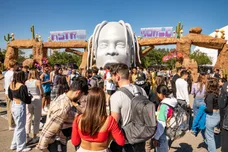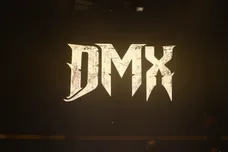Competition has always been present within hip-hop culture. Stories of fabled battles have become celebrated hip-hop lore. The fallout from Jay-Z and DMX’s legendary head-to-head was enough to plant the seeds for further hostility. Wu-Tang: An American Saga depicted the epic duel between Meth and Chef playing out on the New York streets, one that later went on to be reenacted in the booth. Eminem’s own roots at Detroit’s staple landmark The Shelter found him scoring a decisive victory against Kuniva, who would go on to be his D12 group-mate. A culture where the act of becoming the best was validation that one deserved that coveted respect. And in hip-hop, many rappers would place that beyond both money or power.
For those who hold a deep appreciation for hip-hop culture and those who contribute to it, certain conversations are simply inevitable. The unending chase to crown the Best Rapper Alive has sparked countless hours of discourse. Be it in the barbershop or online, with friends or rivals alike, opinions on rap elitism are often delivered with the passion of a Puritanical preacher. People will live and die on these particular swords; a take on a rapper’s greatness can become an extension of one’s own self, as criticism on taste can feel uniquely personal. The stakes may seem comically high to those removed from the discussion, but anybody passionate about hip-hop has likely found themselves getting unexpectedly heated trying to explain why Nas is in fact a better rapper than Jay-Z -- or vice versa, depending on your position.
Scott Gries/Getty Images
On one hand, the obsession with ranking that seems to permeate hip-hop can lead to some excellent analysis. In attempting to validate why a rapper deserves the crown, one often pulls directly from the music itself. This type of thorough analysis, not unlike a close reading, encourages one to examine important factors like technique and cultural context. At times, a hip-hop debate can feel academic in nature, insofar as the amount of information presented. A self-declared rap nerd can cite lyrics and sometimes even commercial statistics with precision. As toxic as a culture of perpetual ranking can sometimes feel, it does encourage fans to actively participate in the act of listening, more than once and beyond a surface level. There’s a comfort, though perhaps a vain one, in trying to find objective truth in art. A feeling that getting it right will guarantee one’s credibility. It’s not uncommon to for someone to form their conclusion, hear a critic’s unflattering take, and go on to change their tune entirely. Such is the power of a well-formed opinion.
Lester Cohen/WireImage/Getty Images
Of course, there are plenty of factors that can influence a given top ten. Regionalism plays a role, with local artists gaining a home town advantage in certain circles. Nostalgia is an equally powerful tool, with many fans holding the artists from their formative years in high esteem. It makes sense; the longer one can watch a career unfold, the deeper a level of contextual understanding one can gain. For example, somebody who was growing up when DMX released It’s Dark And Hell Is Hot and Flesh Of My Flesh, Blood Of My Blood back to back in 1998 might appreciate his legacy more than somebody revisiting the tandem retroactively. It’s one thing to understand that Eminem’s The Marshall Mathers LP was a controversial album, and another thing entirely to witness the panicked fervor unfolding in real-time. While not exactly gospel, it feels fair to assume that fans tend to gravitate toward the music they grew up with, as their cherished memories have been built around it. It’s one of the many reasons that finding that coveted objective truth is so difficult. For every compelling argument is a compelling counterpoint to match it.
It’s almost better to embrace the subjectivity behind rap ranking, rather than continuously speak as if a reliable truth can be established. That way, unnecessary controversies can be avoided, as was the case when Snoop Dogg claimed Eminem was not included in his own Top 10 list. Despite it being the Dogg’s opinion, it was framed as outright disrespect toward Slim Shady. In reality, Snoop’s actual Top 10 was lined with rappers from his own formative era, which proves the power of nostalgia where these rankings are concerned. Prior to that, one particular Best Rappers Of All Time list (the one that placed Joe Budden as third) sparked a viral movement, with media publications and rap pundits rushing to add their own contribution to the discussion. Familiar faces tended to line the higher ranks -- a trend that does speak to some level of objective truth, to be fair -- but each list had a few personal touches. A harmless bit of fun in theory, but having recently seen the controversy a Top 10 list can spawn, perhaps there is more to this than meets the eye.
Johnny Nunez/FilmMagic/Getty Images
What gets people so hot and bothered when a Top 10 differs from their own? By examining it through a competitive lens, one can interpret disagreement as an attempt to discredit entirely, an easy mistake to make depending on how passionate the discussion gets. How can one really argue definitively that Jay-Z is better than Eminem, or vice versa? Yet who killed “Renegade” harder has been debated by hip-hop scholars for literal decades. The fact they both helped make the song a classic simply isn’t enough. That element of competition is steadily lurking at every corner. One might very well be staging the great “Renegade” debate on the surface, while actually making arguing that one rapper is altogether better than the other. The quest to crown the “best rapper alive” has been undertaken by fans and artists alike for decades. But like any quest lacking a finite goal, it never truly ends.
So in the end, is the need to encapsulate decades of long-developed taste into a neat and tidy Top 10 list a healthy practice for hip-hop? It feels like the answer is a classic yes-and-no. With social media being what it is, not to mention the desire to both write and read long-form rap analysis, the need for critical thinking is at an all-time high. Putting oneself in the position to truly put an artist’s career -- and not only that, but their attributes on a technical level -- under the microscope can lead to some compelling discussion. These discussions can help one build a deeper understanding and appreciation for the craft. The danger arises when ego enters the mix -- when one becomes more concerned with asserting their position as an authority than they are engaging in a healthy and celebratory discourse; whenever elitism rears its head, all it does is pollute the well.
That’s not to say hip-hop heads shouldn’t engage with one another in spirited debates over the hierarchy of rap royalty. It builds character. Narrowing down one’s top ten can say a lot about somebody’s musical history and taste, which can ultimately make for a great icebreaker. Still, it’s hard not to feel slightly alarmed whenever a popular artist gets dragged for omitting a given legend from their own list, as we saw when Snoop Dogg attempted to pay homage. The fun doesn’t come from blindly championing for a given emcee, but explaining the reasoning behind the conclusion. Walking away with a deeper understanding of Ghostface Killah’s vocabulary and mastery of slang is far more conducive than being shamed for omitting Tony Starks entirely. For that reason, it's likely that the Top 10 will continue to be a part of hip-hop conversation -- at least, until the fateful day where rappers cease aspiring for that coveted top position. Until that time comes, you know what to do.







